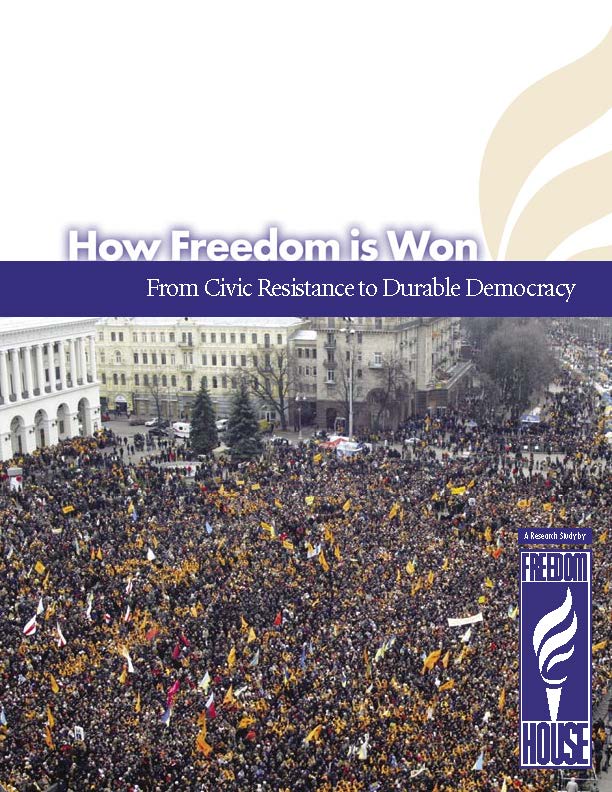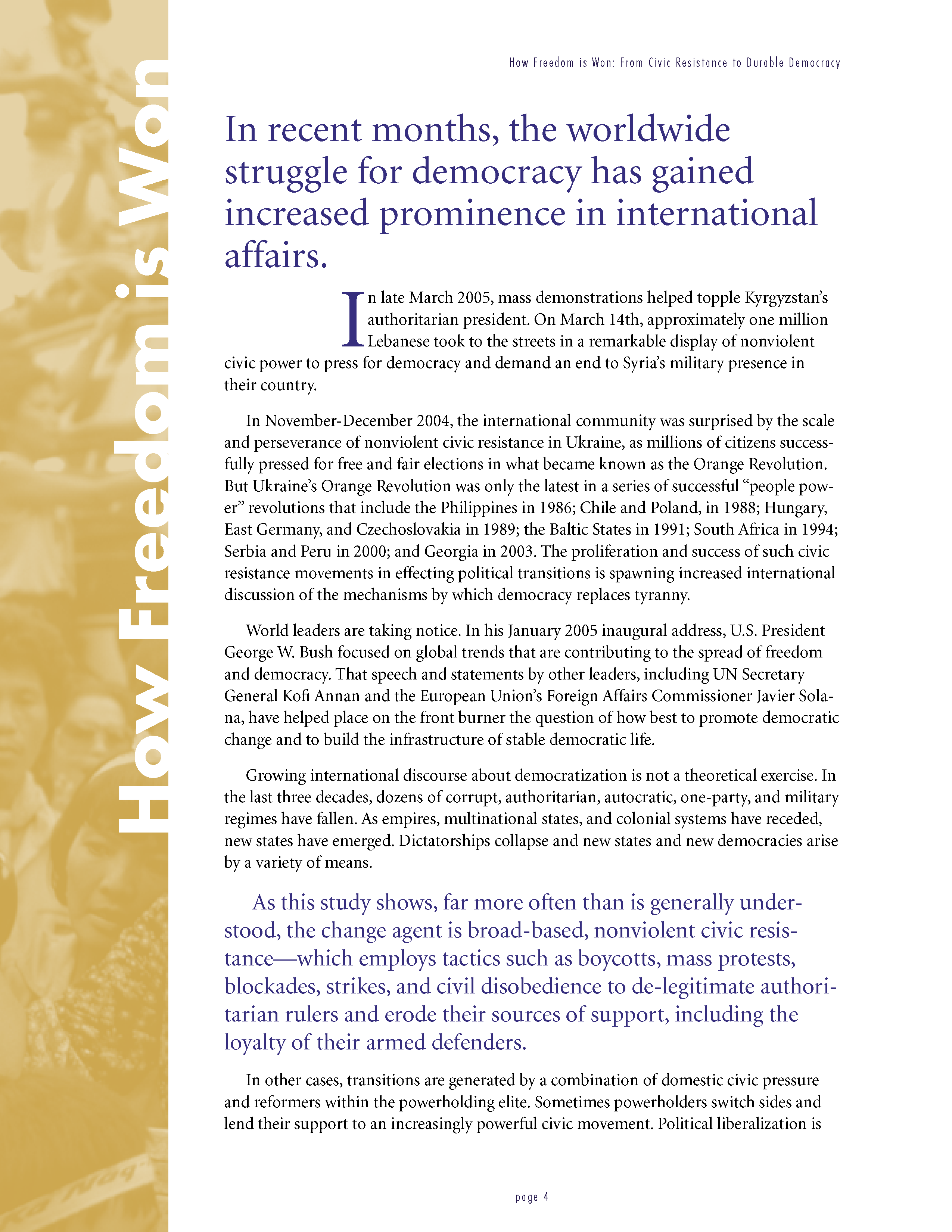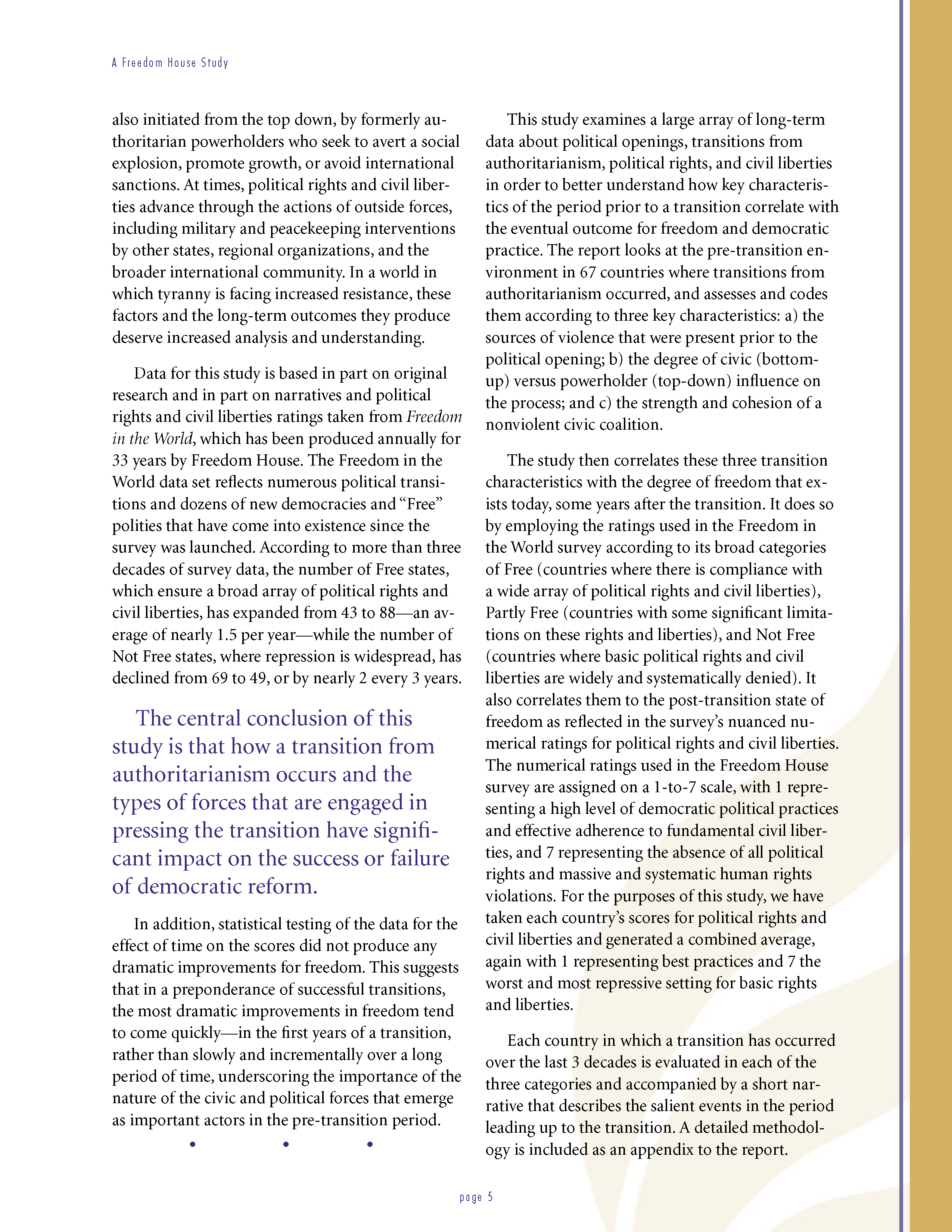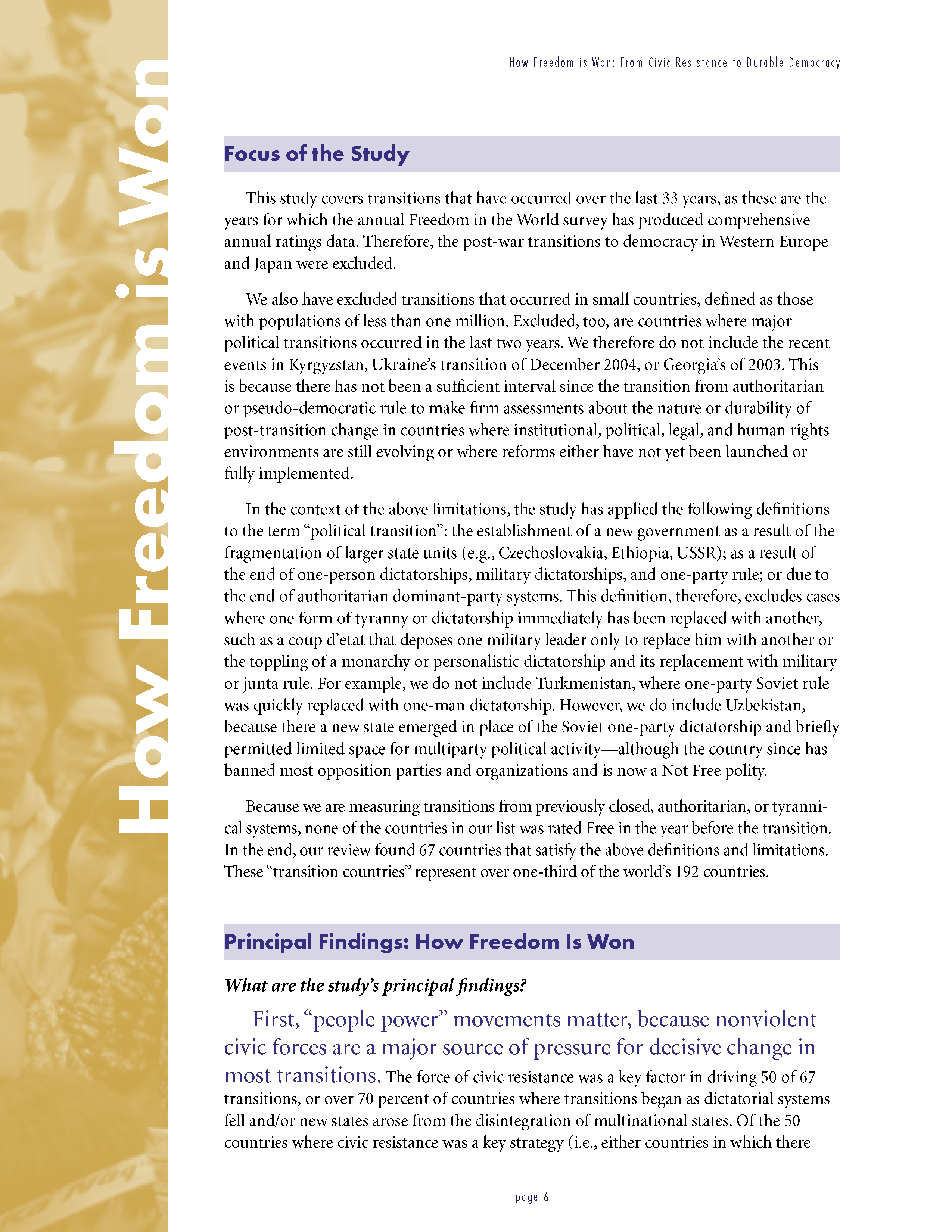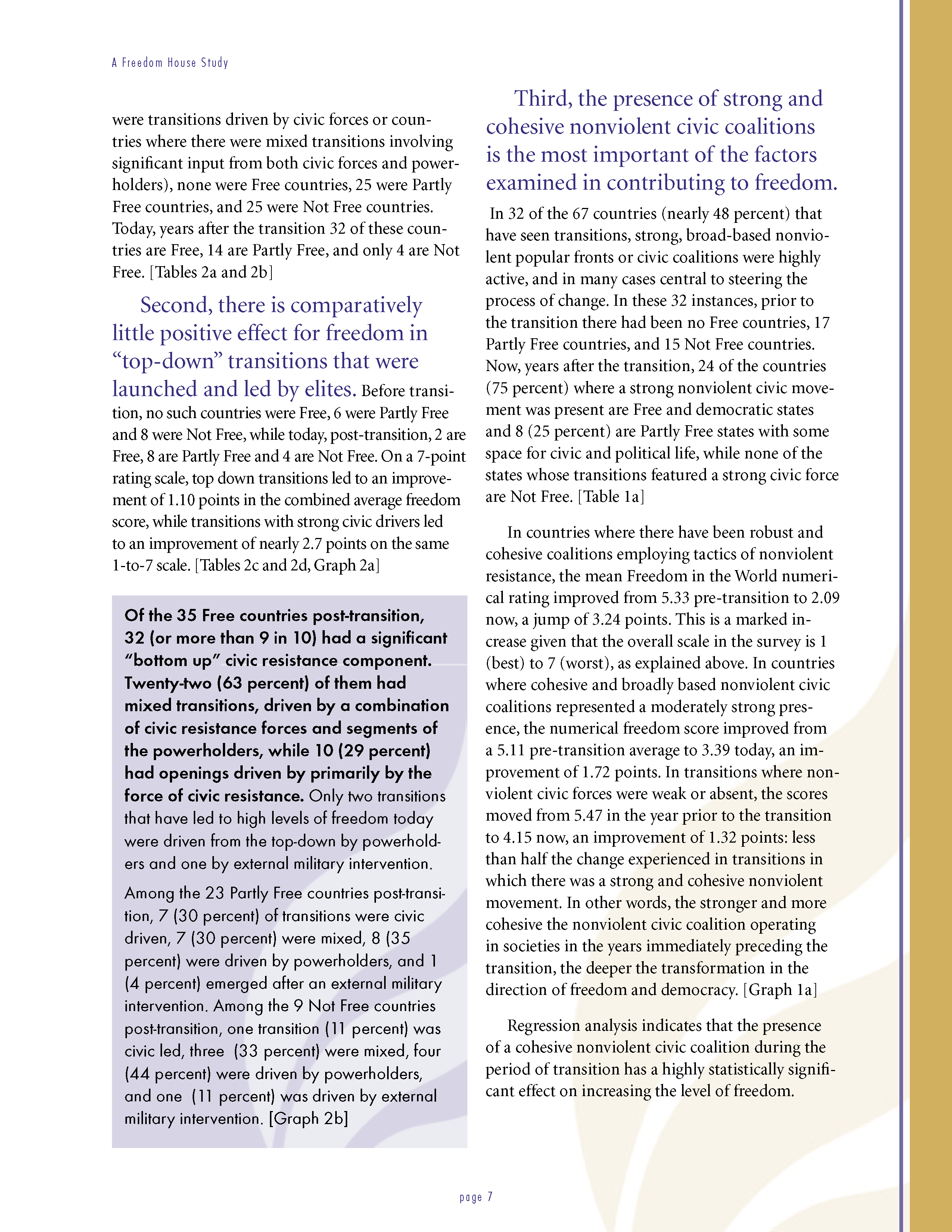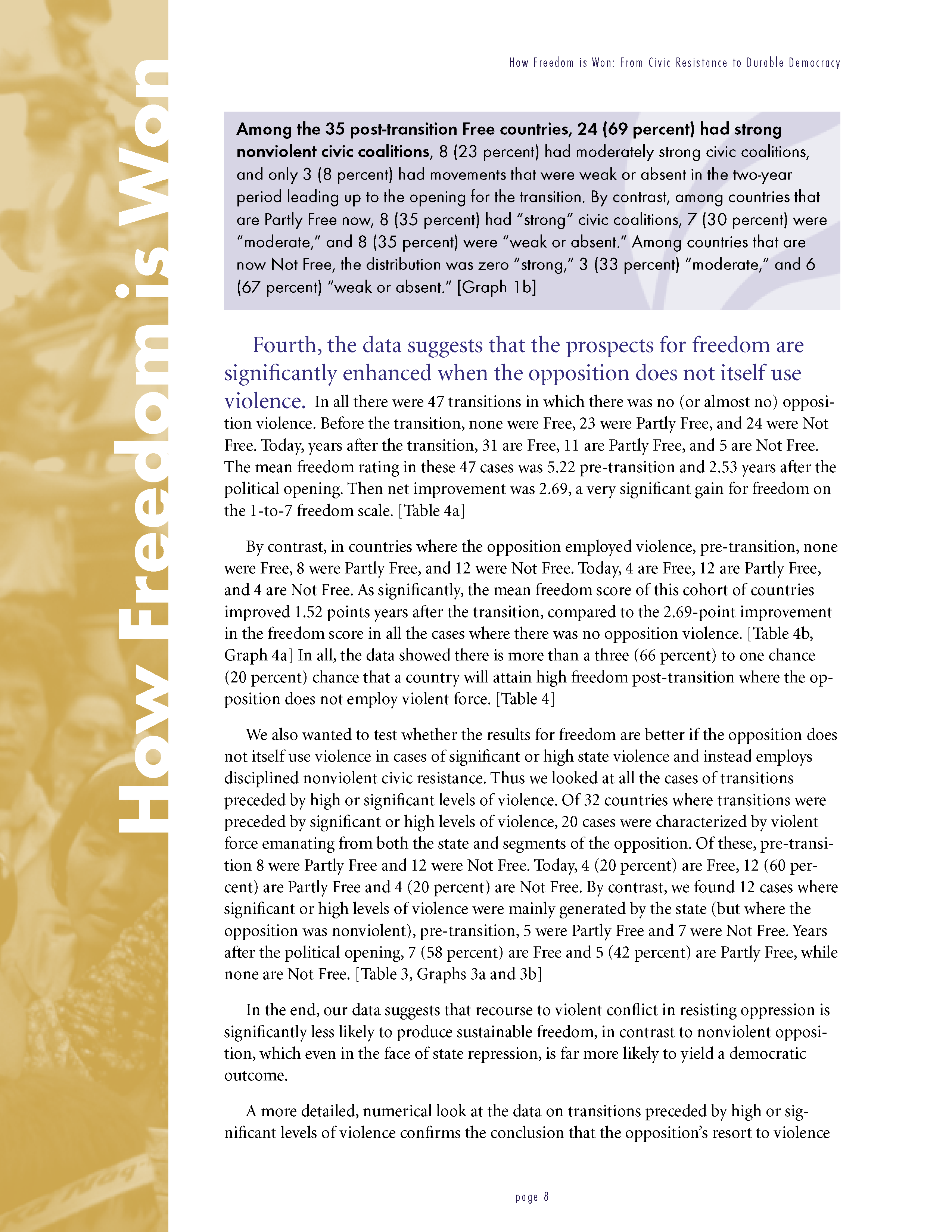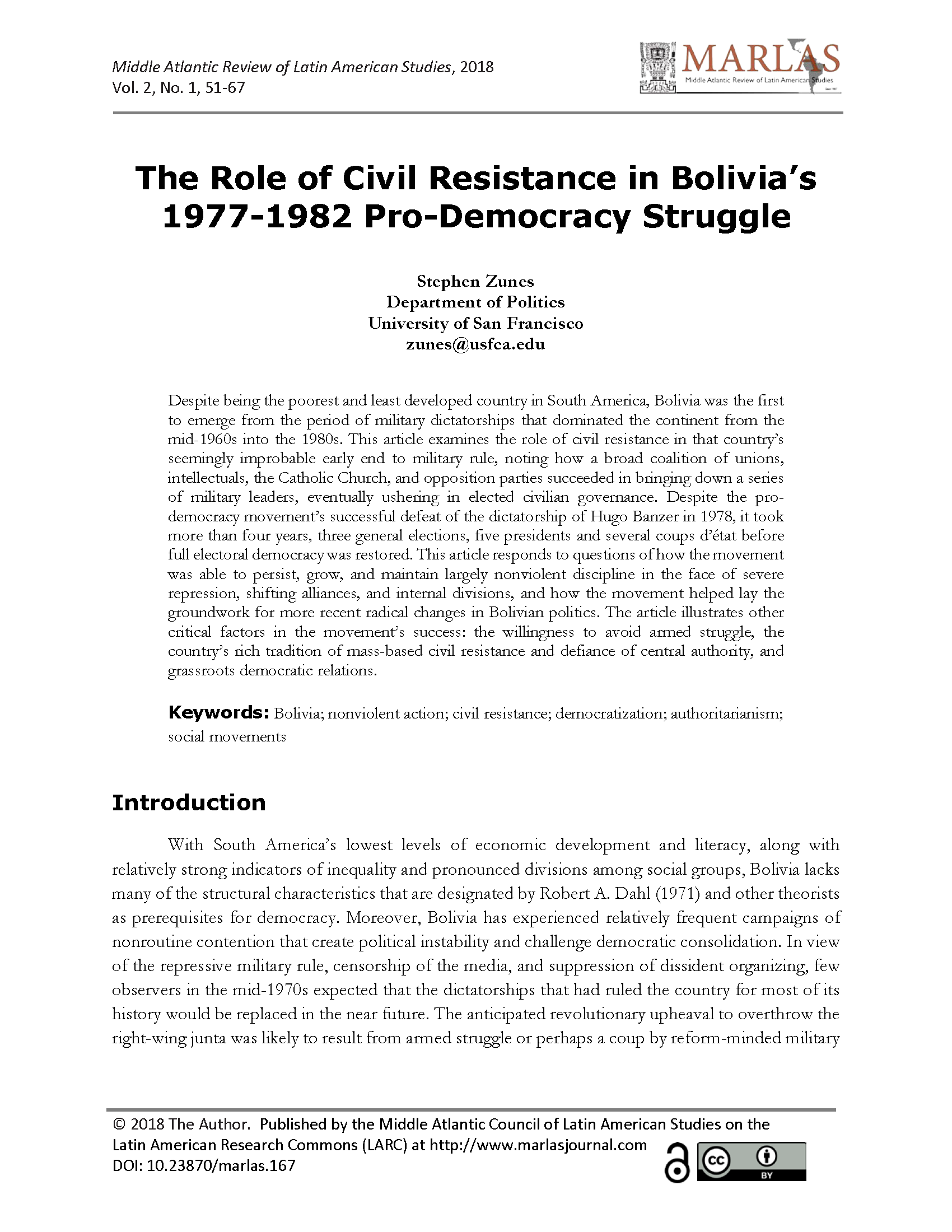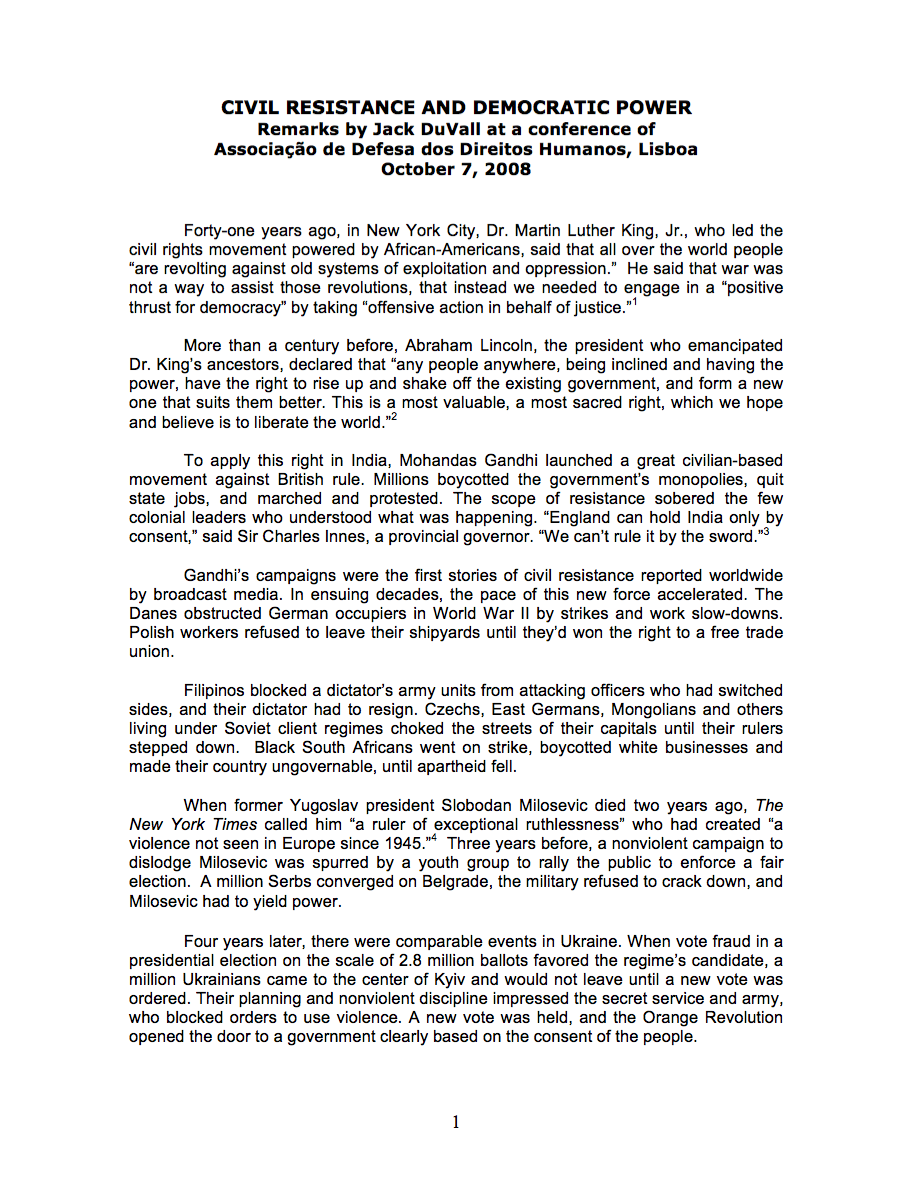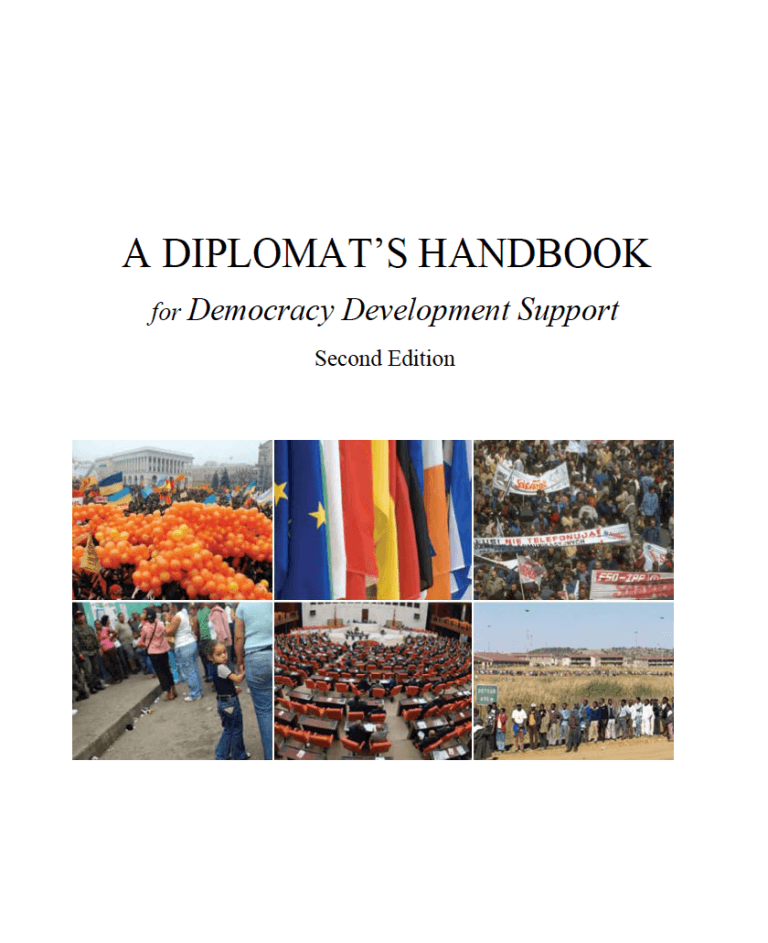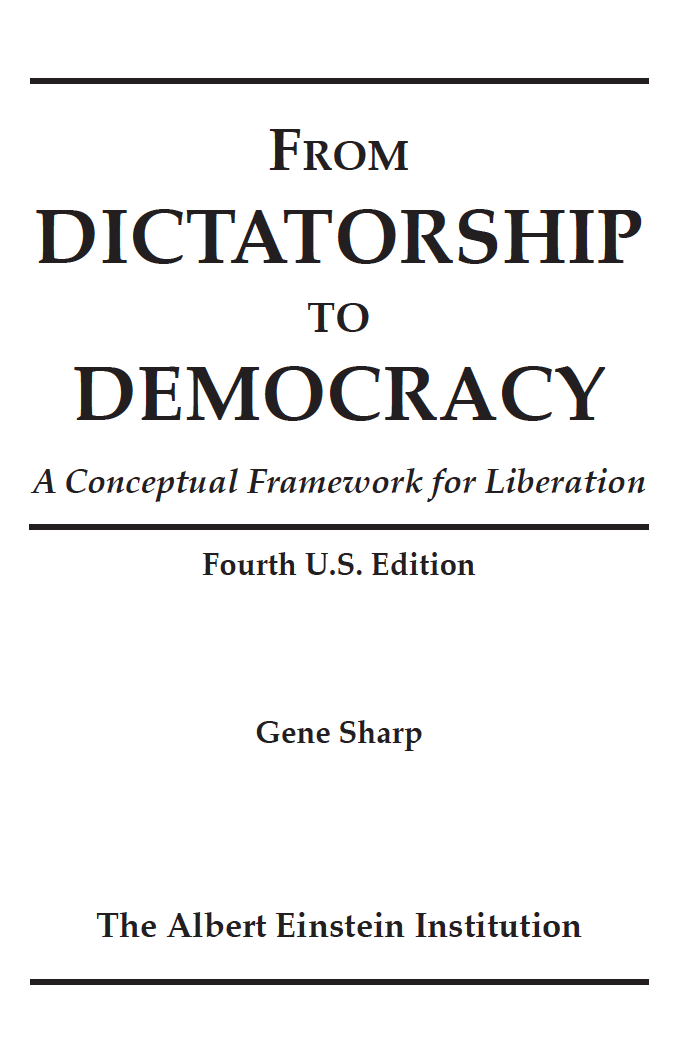How Freedom is Won: From Civic Resistance to Durable Democracy
The study, “How Freedom is Won: From Civic Struggle to Durable Democracy,” focuses on 67 countries where dictatorships have fallen since 1972. It draws on over 30 years of Freedom House data analyzing the state of global freedom and is the most comprehensive examination of political transitions ever conducted. The report’s central conclusion is that how a transition from authoritarianism occurs and the forces that drive the transition have significant impact on the success or failure of democratic reform. In large measure, the study finds that transitions generated by nonviolent civic coalitions lead to far better results for freedom than top-down transitions initiated by elites. The study finds that “people power” is a frequent phenomenon, and civic coalitions are a major presence in most transitions. In 50 of the 67 transitions, or over 70 percent of countries where authoritarian systems fell, nonviolent civic resistance was a strong influence. Civic resistance employs such tactics as mass protests, boycotts, blockades, strikes, and civil disobedience to challenge the legitimacy of and erode support for authoritarian rulers.
Freedom House, 2005
Study Director: Adrian Karatnycky
Study Adviser: Peter Ackerman
Study Researcher: Mark Y. Rosenberg
Washington, DC -June 2005
